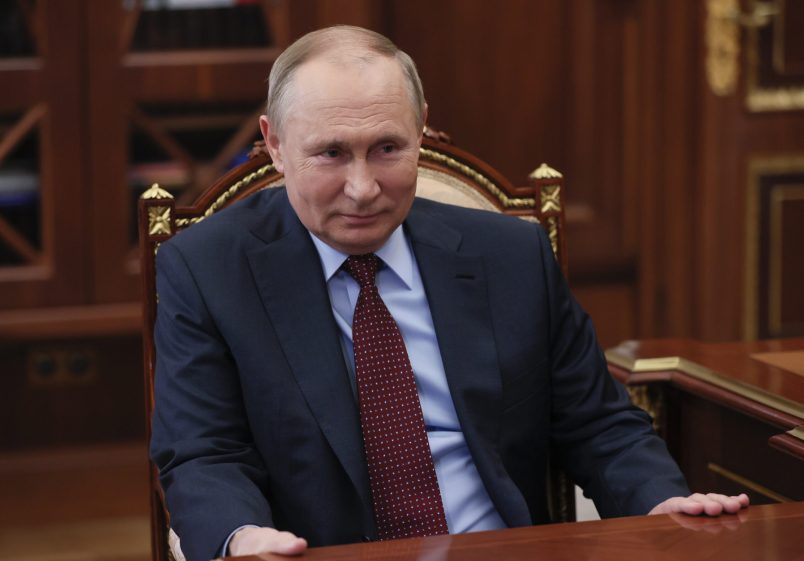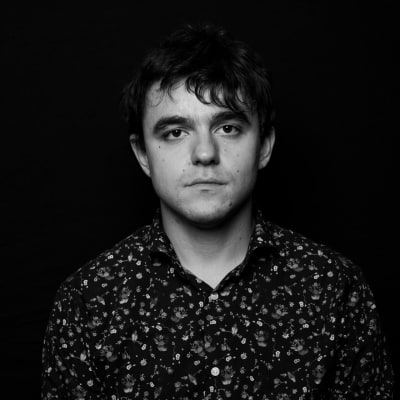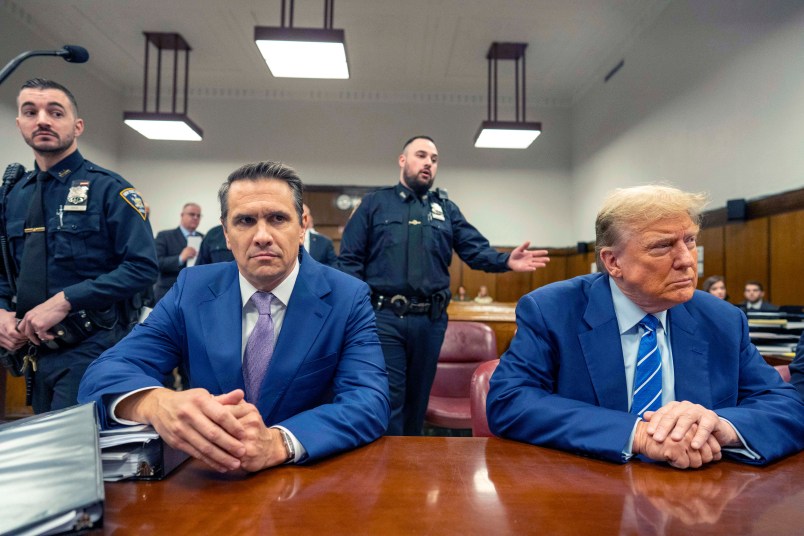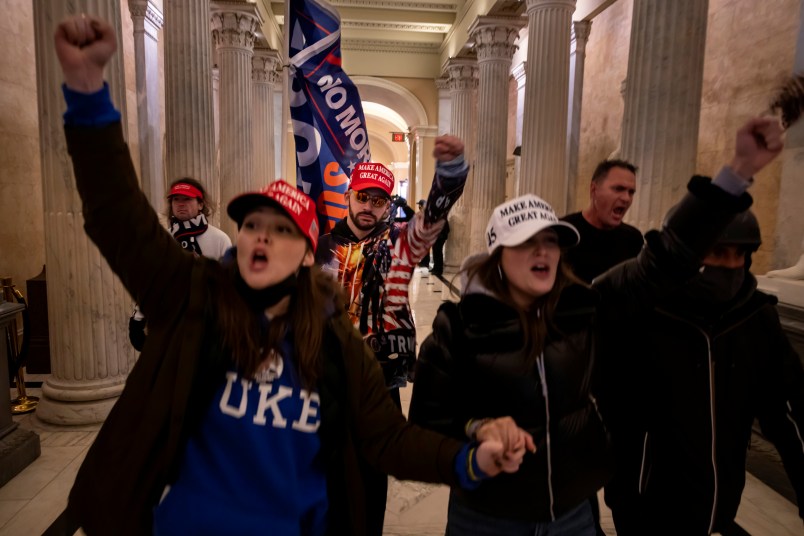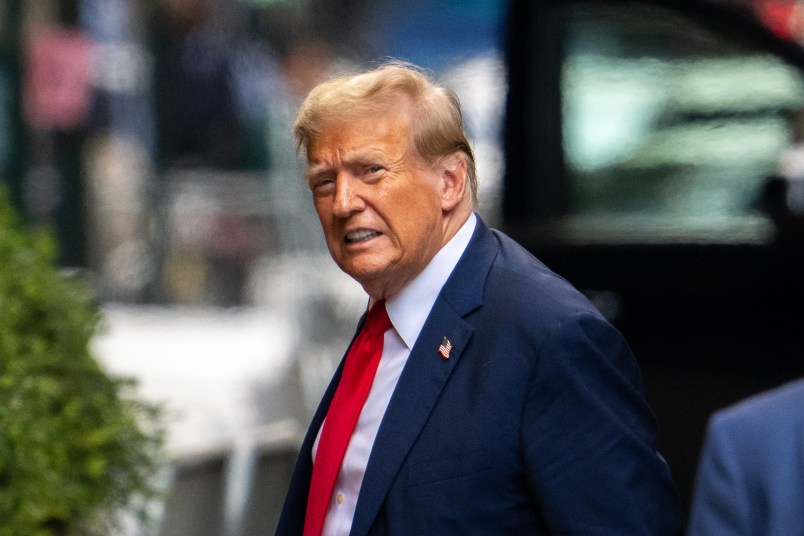On a dusty road near Mongolia on Sunday, hundreds of Russians turned out to bury Ilya Buldin.
Photos from the the city of Chita, located along the trans-Siberian railway route, showed a small procession of SUVs and vans, some with the “Z” symbol of the Russian invasion into Ukraine taped onto their windows.
Russian news articles and social media posts about Buldin’s funeral describe his death as due to a “special operation in Ukraine” — nothing more, nothing less.
The reports described one funeral of many, as similar stories of families burying their war dead begin to dribble out in Russian-language media across the country.
The details have emerged in spite of the Kremlin crackdown on information about the war and its impact on the Russian military. In some cases, the commemorations of the dead are in service of Kremlin narratives that compare the invasion to Russia’s experience in World War II.
TPM sifted through dozens of public reports in Russian news sites and on social media recognizing the country’s war dead. In some cases, regional governors and local mayors delivered the news; in others, family members or local schools announced it.
The magnitude of Russia’s losses remains wildly unclear. U.S. officials said on Sunday that they have a “low confidence” estimate of 4,500 Russian killed. Ukraine has put the number at more than 11,000. The attempts to estimate casualties come as invading Russian forces escalate their shelling of some Ukrainian cities, with some reports indicating that thousands of Ukrainian civilians may have perished.
For Lyudmila Khanygina, of Atkarsk, a town 400 miles southeast of Moscow, her son Maksim’s death in war came as a surprise in part because they had spoken on Feb. 23, the night before the invasion.
Maksim’s birthday was Feb. 25, and, his mother told a local news outlet, he had said that his unit was going to do exercises on Feb. 24 that would keep him busy. He’d call as soon as he could.
“The military unit called me at 2 p.m. and said: ‘Your son was killed in action on Feb. 24.’ And then they sent the notice on Whatsapp,” Khanygina told a local outlet. “And nobody has explained anything more.”
Khanygina appears to have taken the initiative to tell local bloggers and news media about her son’s death. In other cases, what looks to the West like unexpected blunders by Russia’s military has been recast in Russian media, spun up for propaganda purposes.
Take the story of Andrey Sukhovetsky, a major general and second-in-command of Russia’s 41st army who reportedly died in Ukraine.
Sukhovetsky gained attention largely because of his high rank, with Western tabloids covering his death as a victory at the hands of a Ukrainian sniper. Western officials reportedly characterized his presence on the front lines as part of an effort by Russian commanders to “impose their own personality on the battlefield” amid missteps by inexperienced and demoralized soldiers.
But in the Russian media, Sukhovetsky’s death was an opportunity for propaganda commemorating the fallen commander from Novorossiysk, a Black Sea town not too far from Ukraine.
Remarks from city officials in Novorossiysk portrayed his death as having been “in defense of the motherland, with the honor of guaranteeing the inviolability of her interests.”
Similar language permeates several of the official announcements reviewed by TPM.
Arman Narynbaev, an ethnic Kazakh from Russia’s Astrakhan region, was buried on March 3. At his funeral, his wife tearfully remembered how she, like others, last spoke to him on Feb. 23 — the last day before the invasion.
Russian news didn’t quote Narynbaev’s wife as saying anything else, only that she bestowed a posthumous “order of bravery” on his grave.
Igor Babushkin, the region’s governor, framed Narynbaev’s death as part of a larger battle with the West over “Russia’s interest on her western borders.”
“Let’s band together in the face of unprecedented sanctions putting pressure on our country, and not give into provocations from those whose own prosperity and comfort come from handouts from Western ‘partners’ that are more important than Russia’s national interests,” Babushkin wrote in a post about Narynbaev’s death.
In Narynbaev’s death announcement, like that of many others, there was no reference to a broader war in Ukraine, and no sense of the scale of death and destruction inflicted on Ukrainians, images of which are available to Western audiences on demand. Instead, the announcement echoed the Kremlin’s description, referring to the conflict only as a “special operation” in Donetsk and Luhansk, the two eastern regions of Ukraine where Russia first fomented a war eight years ago.
Buldin, the Chita soldier buried on Sunday, died at age 19. His death appears to have prompted curiosity and outrage among those who saw it. The Russian news outlet that first reported his death had to close comments on the article after hundreds of people demanded to know what it was, exactly, that he died for.
For Khanygina, the mother whose son told her he was headed to exercises the day before his birthday, the journey does not appear to have ended.
Since learning of her son’s death, local reports have said, Khanygina has tried to retrieve her son’s body.
As of Friday, she had not succeeded — reports say she had only been told to get in touch with the FSB, the country’s internal security service.





